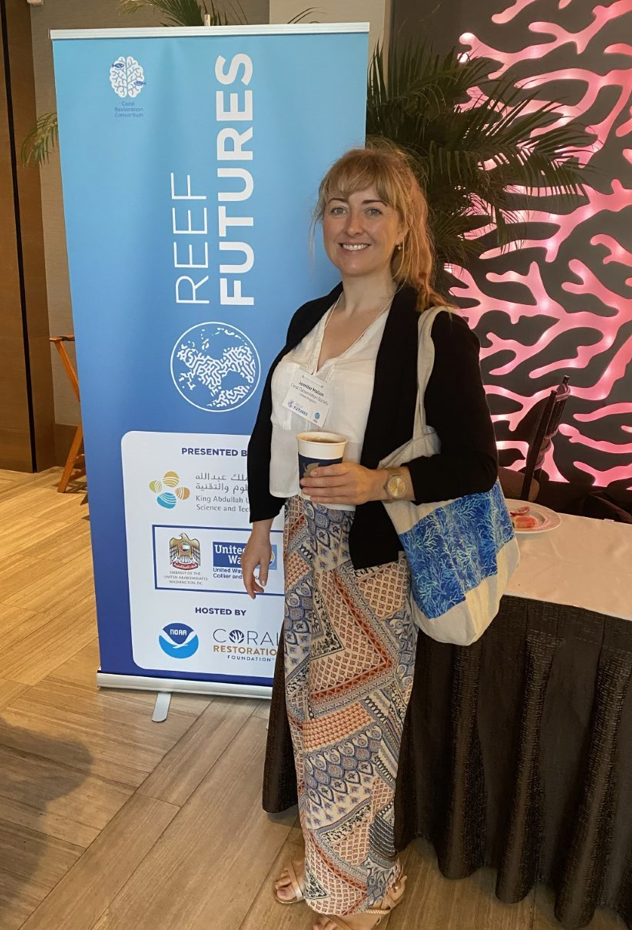Attending Reef Futures 2022 was a unique experience; not only as the first in-person meeting after the pandemic, but also due to one the strongest hurricanes of recent years hitting Florida and causing travel chaos and devastation. The talks and conversations about the coastal protection value of coral reefs, and the impacts of climate change on storm frequency and severity were all the more poignant, highlighting the critical importance of our work as reef restoration scientists and practitioners.

As the winds battered the coastline and floods threatened the safety of the bridges joining some of the islands on the south and west coast of Florida, we found ourselves in a kind of ‘lockdown’ on North Key Largo, at the Ocean Reef Club. On day 1 the plenary sessions were wrapped up in time for those staying off-site to make it back to their accommodations, while those staying on site were advised to return to their rooms as the winds were picking up.
We watched the devastation of storm Ian on the weather channel as it hit Cuba, Key West, and finally Fort Myers and the West Coast of Florida. I experienced my first tornado warning alarm, and my roommates told me what it was like living through hurricanes and tropical storms. In our hotel rooms, we discussed how these events increasingly affected Florida residents and the importance of rebuilding natural sea defenses.
We empathised with our colleagues who could not travel to the conference, and with the organizing committee, who had rescheduled the conference multiple times due to COVID. Now, thanks to the hurricane, we had to make last-minute changes to the schedule. Later, in the closing remarks, organizer Tom Moore told us that on that first day, the resort had canceled the meeting altogether.
Still, they had pushed hard (and succeeded!) to keep the conference running, albeit at a reduced schedule.
Tracking Calcification
All concurrent sessions were squeezed into the final day of the conference, when the conditions had finally calmed down enough for the island resort to be safe. I gave my talk, initially scheduled for the first day of the conference. I was presenting the initial results of a pilot study conducted at Mote in 2021, which I was due to build upon as part of a 1-year postdoctoral research project sponsored by the US-UK Fulbright commission.

The project aims to develop a novel approach to reef restoration monitoring using biogeochemistry to enhance, standardize, and facilitate long-term, efficient, and detailed tracking of reef restoration progress using calcification as a proxy of coral growth and health.
Networking
Of course, the Hurricaine Ian Happy Hour drinks and snacks provided by the organizing committee were a great opportunity for us all to get together, and the conversation and ideas flowed freely, as we sheltered from the storm curving its way around the island and headed north to the mainland. I had the chance to chat with old colleagues from the Mesoamerican reef area and I also made new contacts with energy and enthusiasm for future collaborations. Through those rainy afternoons, we spent hours chatting with colleagues past and present and for me, this conference was a moment of reflection to think about how much has changed since I last attended Reef Futures in 2018, in the early stages of my PhD, now attending the conference as a fully fledged postdoctoral research scientist.
Thanks to Coral Conservation Society for funding my attendance at Reef Futures 2022!